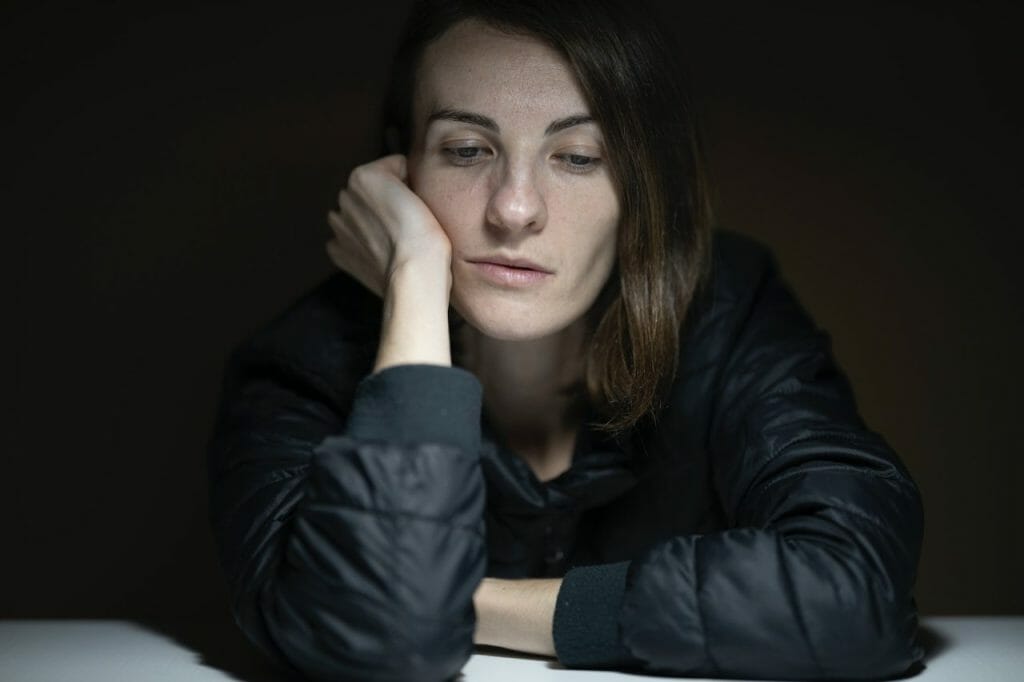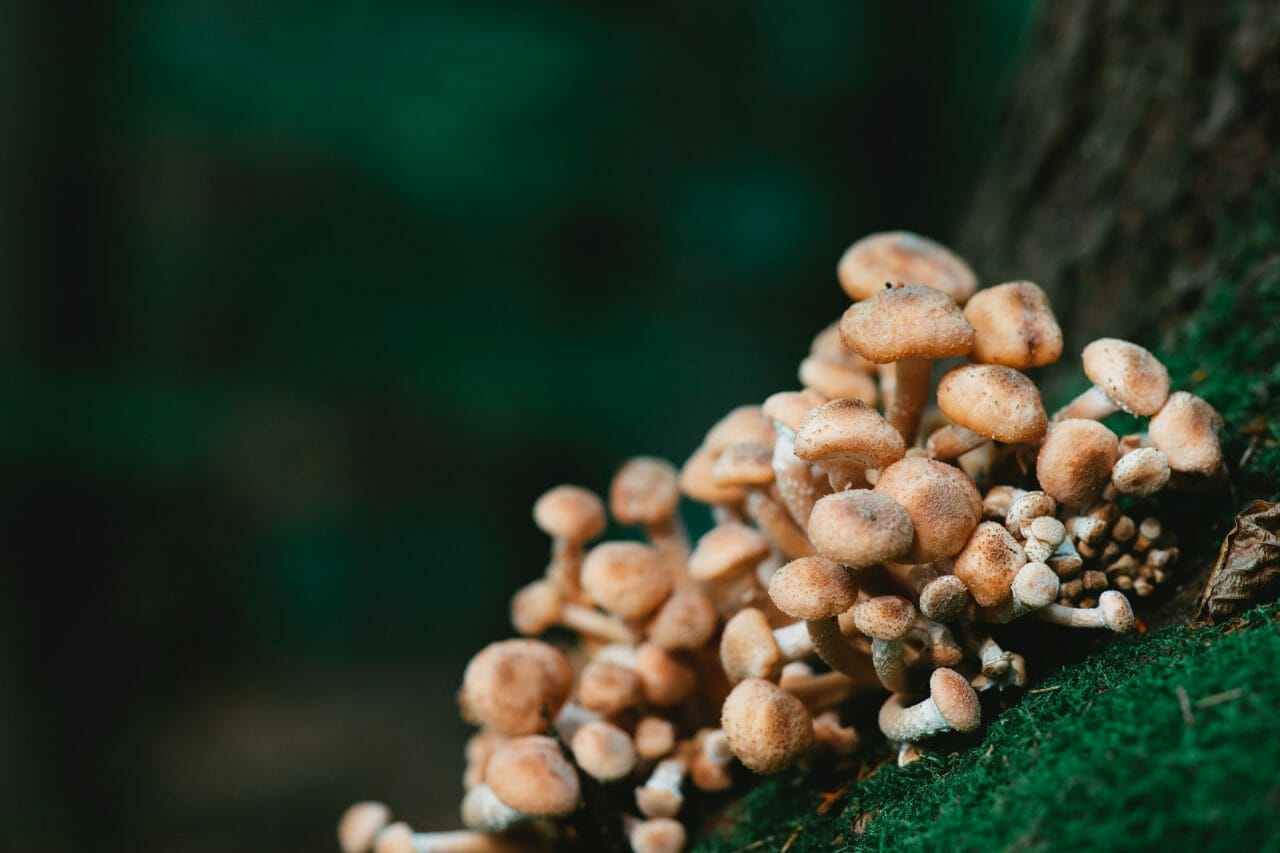The World Health Organization (WHO) has reported that more than 264 million people worldwide are affected by depression.
Conventional treatments, while often effective, sometimes fall short due to the complex nature of depression. This has led to a growing interest in alternative therapies, including the use of psilocybin-rich mushrooms, obtained from a mushroom dispensary, for depression treatment.
Let’s delve into the world of mushroom dispensaries, their role in treating depression, and the eye-opening statistics that underscore their potential to revolutionize how we tackle this pressing global mental health challenge.
Main Takeaways:
- Mushroom dispensaries offer an alternative treatment for depression using psilocybin-rich mushrooms.
- Research suggests that psilocybin can lead to significant and long-lasting reductions in depression symptoms.
- Psilocybin therapy is part of a rising trend that’s reshaping mental health care.

Understanding Psilocybin and Its Therapeutic Potential
Psilocybin is a natural compound found in certain mushroom species, commonly known as “magic mushrooms.” When ingested, the body converts psilocybin into psilocin, which impacts the brain’s serotonin receptors. This interaction triggers significant shifts in perception, mood, and consciousness typically associated with the use of psilocybin.
Research into the potential of psilocybin as a treatment for depression has yielded impressive findings. Clinical trials and studies indicate that a single, carefully administered dose of psilocybin can result in substantial reductions in depressive symptoms. Patients have reported lasting and transformative effects on their mental health and overall quality of life.
These findings have prompted heightened interest and investment in exploring psilocybin as a distinctive treatment alternative for depression, particularly among those who have not benefited from traditional therapies.
The Potential of Magic Mushrooms in Depression Treatment
DispensariesCommonly known as magic mushrooms, psilocybin-containing mushrooms have attracted attention for their potential role in alleviating depressive symptoms. Let’s explore various types of these fascinating fungi and investigate the potential positive effects they may have on depression.
| Mushroom Species | Characteristics | Potential Advantages for Depression |
| Golden Teacher | A widely favored psilocybin mushroom, recognized by its golden-hued cap. | Possibly beneficial for reducing depressive symptoms and augmenting emotional well-being. This variety can stimulate introspection and self-reflection, potentially aiding individuals in gaining new insights into their depressive state. Some users describe feelings of unity and connectedness, which might counteract the isolation commonly associated with depression. |
| Psilocybe Cubensis | One of the most common species of magic mushrooms. | Renowned for inducing positive changes in mood and outlook on life. May enhance emotional understanding and assist individuals in addressing the root causes of their depression. The altered state of consciousness it produces can potentially help users break free from rigid thinking patterns and foster a more optimistic mentality. |
| B+ | Identified by its large, bulbous fruiting bodies. | Potentially leads to significant and lasting decrease in depressive symptoms. Users frequently report achieving a clearer understanding of their emotions and life circumstances. The therapeutic journey could assist in releasing repressed emotions and trauma, thereby providing relief from depression. |
| Liberty Cap | Small, cone-shaped mushrooms found in various geographical locations. | Known for inducing intense emotional experiences that could have a positive impact on depression. During a Liberty Cap trip, users often experience increased sensitivity and empathy, fostering emotional healing and connection. The immersive and profound nature of the psychedelic journey may help individuals understand the underlying causes of their depression. |
| Penis Envy | Notable for its unique, phallic-like shape. | Associated with deep insights and changes in depressive thought patterns. Users frequently experience ego dissolution, enabling them to confront their depression without the constraints of their usual identity. The intensity of the experience might lead to therapeutic breakthroughs, resulting in lasting improvements in mental health. |
| Blue Meanie | A potent strain identified by its blue hue. | Blue Meanie is believed to induce a tranquil and soothing effect, potentially alleviating symptoms of anxiety and depression. During the Blue Meanie experience, many users express achieving an inner peace and emotional release, which may potentially improve mental health. This strain, recognized for its mild yet introspective properties, could be particularly suitable for those seeking a less intense psychedelic expedition for therapeutic benefits. |
The Role of Magic Mushroom Dispensaries in Depression Treatment
Magic mushroom dispensaries, also known as shops, play a pivotal role in depression treatment by providing a controlled and regulated environment for those in search of potential therapeutic solutions.
The Role of Health Canada
In Canada, Health Canada serves as the federal organization responsible for overseeing the safety, efficacy, and quality of therapeutic products like the psilocybin found in magic mushrooms.
Approval of Therapeutic Products
Health Canada has recently granted exemptions and approvals for the usage of psilocybin in certain clinical and research contexts for specific medical conditions, including depression. This policy shift represents a growing recognition of the possible therapeutic uses of psilocybin.
Potential Therapeutic Uses
Magic mushroom shops present a potentially innovative and promising therapeutic route for individuals battling depression. With the right authorization and under certain circumstances, people can engage in psilocybin therapy to alleviate depression symptoms.
A Supervised and Regulated Environment
Magic mushroom dispensaries provide a supervised and regulated environment for those looking for psilocybin therapy, ensuring safety and professional oversight during the experience.
Compliance with Health Canada Regulations
Dispensaries must adhere to Health Canada’s rules and guidelines when providing psilocybin-based products for therapeutic uses. They play a critical role in enforcing compliance and ensuring therapy is conducted responsibly and ethically.
Navigating Psilocybin Therapy Through a Mushroom Shop
Undertaking psilocybin therapy through a mushroom shop could be a potentially transformative and beneficial journey. However, it’s essential to approach the process with mindfulness and prudence. Here are some guidelines to help manage the procedure:
- Conduct In-depth Research: Begin with a comprehensive investigation into the field of psilocybin therapy and the particular mushroom dispensary you intend to patronize.
- Seek Expert Advice: Before considering psilocybin therapy, consult a mental health professional or therapist who specializes in psychedelic-assisted treatments. They can assess your suitability for this type of treatment and provide useful guidance.
- Choose a Reputable Dispensary: Look for customer reviews, recommendations, and evidence of compliance with local regulations.
- Understand the Procedure: Familiarize yourself with the entire therapy process, from the preparation stage and the psychedelic journey to the integration after the experience. Knowing what to expect can reduce anxiety and enhance the therapeutic outcomes.
- Prepare Mentally and Emotionally: Prepare yourself psychologically and emotionally for the journey. Set clear intentions for your therapy session, and be ready to confront any challenging emotions or thoughts that may emerge.
- Ensure a Safe Environment: Ensure that the mushroom dispensary provides a secure and comfortable setting for your therapy session. This should include appropriate lighting, music, and the presence of trained facilitators to assist you if necessary.
- Follow Dosage Instructions: Adhere to the dosage recommendations from the mushroom dispensary or your healthcare provider. Avoid self-administration or use of unfamiliar substances, as this can be hazardous.
Conclusion
Mushroom dispensaries that provide psilocybin therapy have emerged as a hopeful alternative for treating depression. Despite the diverse legal and regulatory landscapes that surround these dispensaries, an increasing amount of research and personal experiences highlight their potential to alleviate depressive symptoms and offer individuals new perspectives on their mental health.
As the field of psychedelic-assisted therapy continues to grow, the role mushroom dispensaries play in revolutionizing the depression treatment landscape brings optimism to those seeking innovative mental health solutions.
Frequently Asked Questions
How can I find a reliable mushroom dispensary for depression treatment?
To find a reliable mushroom dispensary, thorough research is essential. Look for dispensaries that comply with local regulations and safety standards. Seek advice from
Ensure to consult healthcare professionals or those with fruitful experiences. Validate the dispensary’s credibility by checking their facilitators’ qualifications and their commitment to ethical conduct.
How long does the therapeutic effect of psilocybin therapy last in treating depression?
The longevity of the therapeutic effects of psilocybin therapy varies from individual to individual. Some may experience immediate relief, while others may notice a steady improvement. Research suggests that the benefits can last several weeks to months following a single session. However, these effects’ duration can also be influenced by the integration and ongoing support.
Is it possible to use psilocybin therapy as a standalone treatment for depression, or does it need to be paired with other therapies?
Psilocybin therapy is usually incorporated into a holistic depression treatment strategy. It might be combined with traditional therapies like psychotherapy, counselling, or medication to increase its efficacy. The choice of treatment methods should be customized based on individual needs and guided by advice from healthcare professionals.
What other magic mushroom products can be used for the treatment of depression?
Aside from traditional magic mushrooms, other magic mushroom products used to treat depression include psilocybin microdosing capsules, psilocybin-infused edibles such as chocolates or gummies, liquid extracts or tinctures, and psilocybin nasal sprays. These alternative psilocybin delivery methods provide a variety of dosing options and administration methods, including precise microdosing for subtle mood enhancements.
Related Article:





